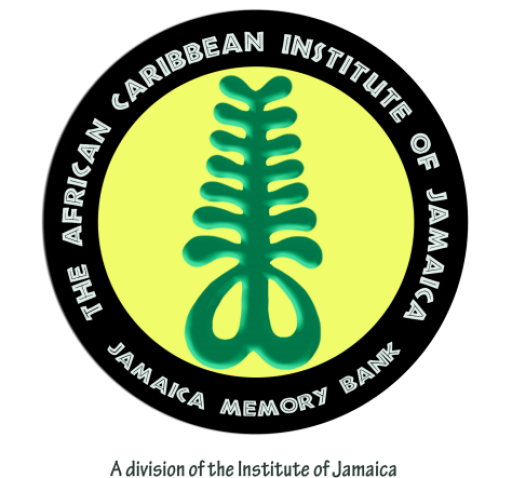Written by: Chelsea Stephenson
The continent of Africa has been characterized by migration and mobility whether voluntary or
involuntary for millenniums. Africans over the centuries have migrated for different reasons to
every corner of the world but none as profound as the forced migration of enslaved Africans
from the Western Coast of Africa through the middle passage and dispersal throughout the
Americas. This displacement resulted in more than 10 million enslaved Africans leaving their
homelands between the 16th and 19th centuries. The enslaved Africans brought to the
Caribbean, particularly Jamaica, though hailing from the same continent had varying ethnic
backgrounds and thus brought with them their own unique cultures that endured on the island
throughout generations despite the efforts of the colonizers to eradicate them. These cultural
retentions feature prominently in Jamaican culture today, the food techniques, religions, dance
dress and in particular, the Jamaican language.
Patois or simply “Jamaican” as it is known is the language spoken by the majority of the island’s
populations although the official language is listed as being English. Patois is the language of the
masses. While the language is described as “English- based” Creole, patios takes much of its
linguistic influence from Irish, Spanish, Portuguese, French settlers. Most notably however, the
language draws from the languages of the enslaved Africans brought to the island. As there was
no single African language, the enslaved brought a number of languages and dialects with them
to the Americas ranging from the Mandinka, Wolof, and Yoruba in West Africa to Kongo in
Central Africa and beyond. These were not mutually intelligible and differed greatly in
vocabulary, syntax, and grammar. As a result, Jamaican patois is a unique coming together of
these African languages with European influences, and indigenous Jamaican expressions.
There are numerous African derived words that have been retained in Patois to this day. They
include:
- Unu- This word for “you all” is rooted in the Akan language of West Africa, particularly
Ghana and Ivory Coast. - Obeah- A term used in Jamaican culture to refer to folk magic or sorcery. Its origin can
be traced back to the Igbo people of Nigeria, where “obi” means sorcery or magic. - Nanny- Named after the legendary maroon leader Nanny of the Maroons, who played a
crucial role in resisting British colonization in Jamaica. “Nanny” is derived from the Akan
word “nana,” which is used as the title of a monarch to signify their status. - Nyam- Meaning to eat, especially roughly or vigorously. This word has its roots in the
Akan language. In Akan, “nyam” also signifies that act of eating.
There are many more words and phrases but those listed above are some of the most easily
recognized and widely used.
Patois is expressed through Jamaican music, films, plays, food, and fashion and has found
significant legitimacy in the global marketplace. The language has become in the words of Dr.
Dennis Howard “fashionable style” amoung non-Jamaicans in many areas of culture and
entertainment. An example of which he gives is Japanese sound system selectors Mighty
Crown, who are all fluent in Jamaican and sound system vocabulary, utilizing the language
during their sets to bring appeal and communicate with patrons.
Though patois has been embraced internationally even forming a part of British and Canadian
slang because of Jamaica’s colonial past there are some who still look down on the language as
being for those of low intellect. Despite this, organizations like the African Caribbean Institute
of Jamaica/ Jamaica Memory Bank work hard to spread awareness on the importance of the
Jamaican Patois to the development and preservation of the island’s culture. International
organizations such as UNESCO also make great contributions to these efforts with their
specially designated days.
As we celebrate the World Day of African and Afrodescendant Culture it is essential to
recognize and appreciate the linguistic legacy that binds Jamaica to its African roots. The
presence of these African words in Jamaica’s language is proof of the enduring influence of the
diverse African cultures that shape the island’s identity. Through language, we can unravel the
threads of history and honour the resilience of the Jamaican people, whose vibrant linguistic
tapestry echoes the spirit of unity and cultural pride.
Bibliography
Benton, John. “The Language Spoken by the First Slaves.” Last modified July 12, 2023.
https://www.uslanguageservices.com/blog/the-languages-spoken-by-the-first-
slaves/#:~:text=There%20was%20no%20single%20“African,in%20Central%20Africa%20and%20
beyond .
Hollington, Andrea. “African Languages in the Diaspora.” Accessed January 11, 2024.
https://www.academia.edu/31941500/African_Languages_in_the_Diaspora?hb-g-sw=2307005
Howard, Dennis. “Jamaican Language Anchoring Cultural Exports.” Gleaner (Kingston, J.A), Nov.
30, 2018.
“Jamaican Patois.” Visit Jamaica. Accessed December 12, 2023.
https://www.visitjamaica.com/discover-jamaica/people-
heritage/language/#:~:text=Jamaica%27s%20official%20language%20is%20English,Portuguese
%2C%20and%20English%20colonial%20heritage .
“World Day of African and Afrodescendant Culture.” Accessed December 12, 2023.
https://www.unesco.org/en/days/african-
culture#:~:text=Held%20every%20year%20on%2024,human%20creativity%20around%20the%2
0globe .
